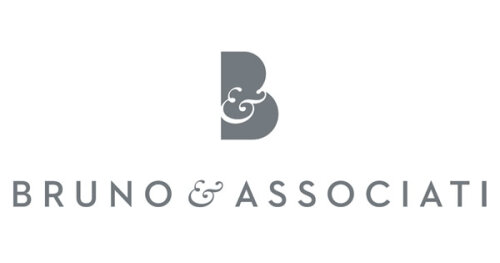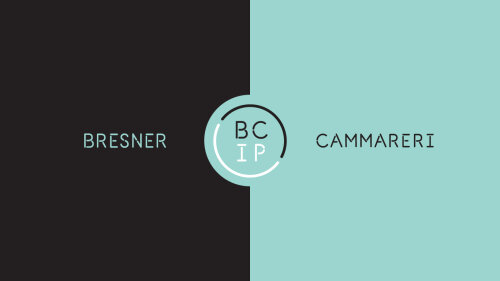Best Accounting & Auditing Lawyers in Milan
Share your needs with us, get contacted by law firms.
Free. Takes 2 min.
List of the best lawyers in Milan, Italy
About Accounting & Auditing Law in Milan, Italy
Accounting and auditing law in Milan is a crucial component of the regulatory framework governing financial transparency and accountability in Italy's financial hub. Milan, being at the heart of Italy's economic activities, has adapted comprehensive accounting standards in line with both national and international regulations, such as the International Financial Reporting Standards (IFRS). Auditors in Milan play a vital role in ensuring the integrity of financial reporting by evaluating the compliance of financial records with statutory requirements.
Why You May Need a Lawyer
Hiring a lawyer specializing in accounting and auditing in Milan may become necessary in several situations. Businesses may seek legal guidance on compliance issues to avoid sanctions due to improper financial reporting. Individuals and companies facing financial audits may need legal representation to handle disputes related to financial misstatements or fraud. Mergers, acquisitions, and restructuring often require expert legal advice to navigate complex financial and tax regulations. Additionally, tax planning and dispute resolution are areas where legal expertise in accounting and auditing can provide significant benefits.
Local Laws Overview
Milan, governed by Italian national law and European directives, adheres to a robust accounting and auditing legal framework. Key aspects include the need for financial statements to be prepared in compliance with the Italian Civil Code, and the requirement for publicly traded companies to use IFRS. Auditing requirements mandate an independent statutory audit for companies that exceed certain size thresholds. Moreover, the Corporate Governance Code provides guidance on the governance practices of listed companies, ensuring transparency and integrity in financial reporting.
Frequently Asked Questions
What are the main accounting standards used in Milan?
In Milan, non-publicly traded companies follow the Italian GAAP, while publicly traded companies use the International Financial Reporting Standards (IFRS).
Who regulates accounting and auditing practices in Milan?
The regulation of accounting and auditing practices is primarily overseen by the Italian Securities and Exchange Commission (CONSOB) and the National Council of Accountants and Auditors (CNDCEC).
When is an audit required for a company in Milan?
An audit is required when a company exceeds specific thresholds in terms of turnover, total assets, and employee numbers, as defined under Italian law.
Can an auditor provide financial advisory services to the same company?
No, to prevent conflicts of interest, auditors are prohibited from providing certain consultancy services to the companies they audit.
What penalties exist for non-compliance with accounting regulations?
Penalties for non-compliance can include fines, legal санкции, and, in severe cases, imprisonment for individuals responsible for financial misreporting or fraud.
Do international businesses have different accounting obligations in Milan?
International businesses operating in Milan must comply with local accounting regulations. However, they may also need to adhere to specific international standards depending on their headquarters' location.
Are there any recent changes to auditing laws in Milan?
There have been recent updates aligned with EU directives aimed at enhancing transparency and improving the quality of audits, reflecting a general European trend towards tightening audit regulations.
How is tax auditing different from financial auditing?
Tax auditing focuses specifically on ensuring compliance with tax laws and accurate reporting of tax liabilities, while financial auditing evaluates an entity's overall financial statements for accuracy and fairness.
Are audits mandatory for startups in Milan?
Startups in Milan may not be subject to mandatory audits unless they reach the statutory thresholds based on size or if they opt to be listed on a stock exchange.
What should I consider when choosing an accounting and auditing lawyer?
Consider their expertise in financial law, familiarity with local and international regulations, track record in handling cases similar to yours, and their professional reputation.
Additional Resources
For further insights and assistance, consider contacting the National Council of Accountants and Auditors (CNDCEC) or the Italian Securities and Exchange Commission (CONSOB). Additionally, the Chamber of Commerce of Milan provides resources and support for businesses on compliance issues.
Next Steps
If you require legal assistance in accounting and auditing, start by assessing your specific needs and legal requirements. It is recommended to consult a qualified lawyer with experience in the field to discuss your situation. Prepare all relevant documentation and data beforehand to facilitate a constructive consultation. This process will not only help clarify your legal standing but also ensure compliance with local laws and regulations, minimizing potential risks and liabilities.
Lawzana helps you find the best lawyers and law firms in Milan through a curated and pre-screened list of qualified legal professionals. Our platform offers rankings and detailed profiles of attorneys and law firms, allowing you to compare based on practice areas, including Accounting & Auditing, experience, and client feedback.
Each profile includes a description of the firm's areas of practice, client reviews, team members and partners, year of establishment, spoken languages, office locations, contact information, social media presence, and any published articles or resources. Most firms on our platform speak English and are experienced in both local and international legal matters.
Get a quote from top-rated law firms in Milan, Italy — quickly, securely, and without unnecessary hassle.
Disclaimer:
The information provided on this page is for general informational purposes only and does not constitute legal advice. While we strive to ensure the accuracy and relevance of the content, legal information may change over time, and interpretations of the law can vary. You should always consult with a qualified legal professional for advice specific to your situation.
We disclaim all liability for actions taken or not taken based on the content of this page. If you believe any information is incorrect or outdated, please contact us, and we will review and update it where appropriate.















